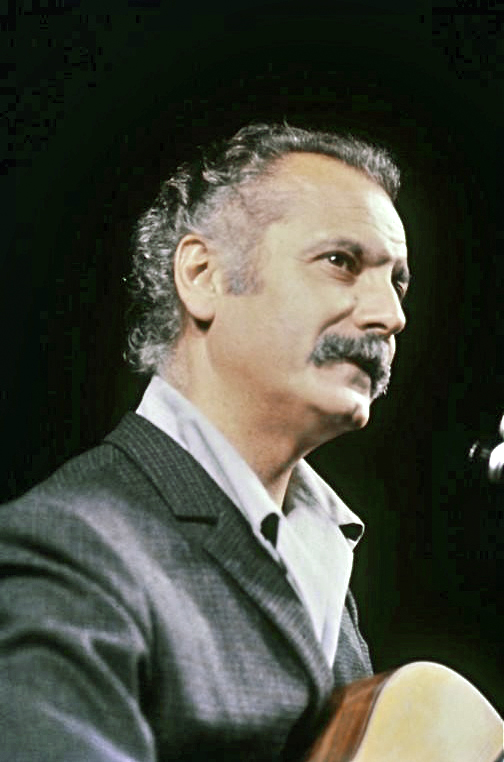Introducing Georges Brassens

Georges Brassens (22 October 1921 – 29 October 1981) was a French singer-songwriter and poet.
Georges Brassens was born in the town of Sète, a town in southern France near Montpellier. Now an iconic figure in France, he achieved fame through his elegant songs with their harmonically complex music for voice and guitar and articulate, diverse lyrics; indeed, Georges Brassens is considered one of France's most accomplished postwar poets. He has also set to music poems by both well-known and relatively obscure poets, including Louis Aragon (Il n'y a pas d'amour heureux), Victor Hugo (La Légende de la Nonne, Gastibelza), Jean Richepin, François Villon (La Ballade des Dames du Temps Jadis), and Antoine Pol (Les Passantes).
Georges Brassens rarely performed abroad. His lyrics are difficult to translate, though attempts have been made. He accompanied himself on acoustic guitar. Most of the time the only other accompaniment came from his friend Pierre Nicolas with a double bass, and sometimes a second guitar (Barthélémy Rosso, Joël Favreau).
Georges Brassens's songs often decry hypocrisy and self-righteousness in the conservative French society of the time, especially among the religious, the well-to-do, and those in law enforcement. The criticism is often indirect, focusing on the good deeds or innocence of others in contrast. His elegant use of florid language and dark humor, along with bouncy rhythms, often give a rather jocular feel to even the grimmest lyrics.
Georges Brassens died of cancer in 1981, in Saint-Gély-du-Fesc, having suffered health problems for many years, and rests at the Cimetière le Py in Sète (...)
Source of the introducing: WIKIPEDIA.
Some Georges Brassens songs may be found from this page.